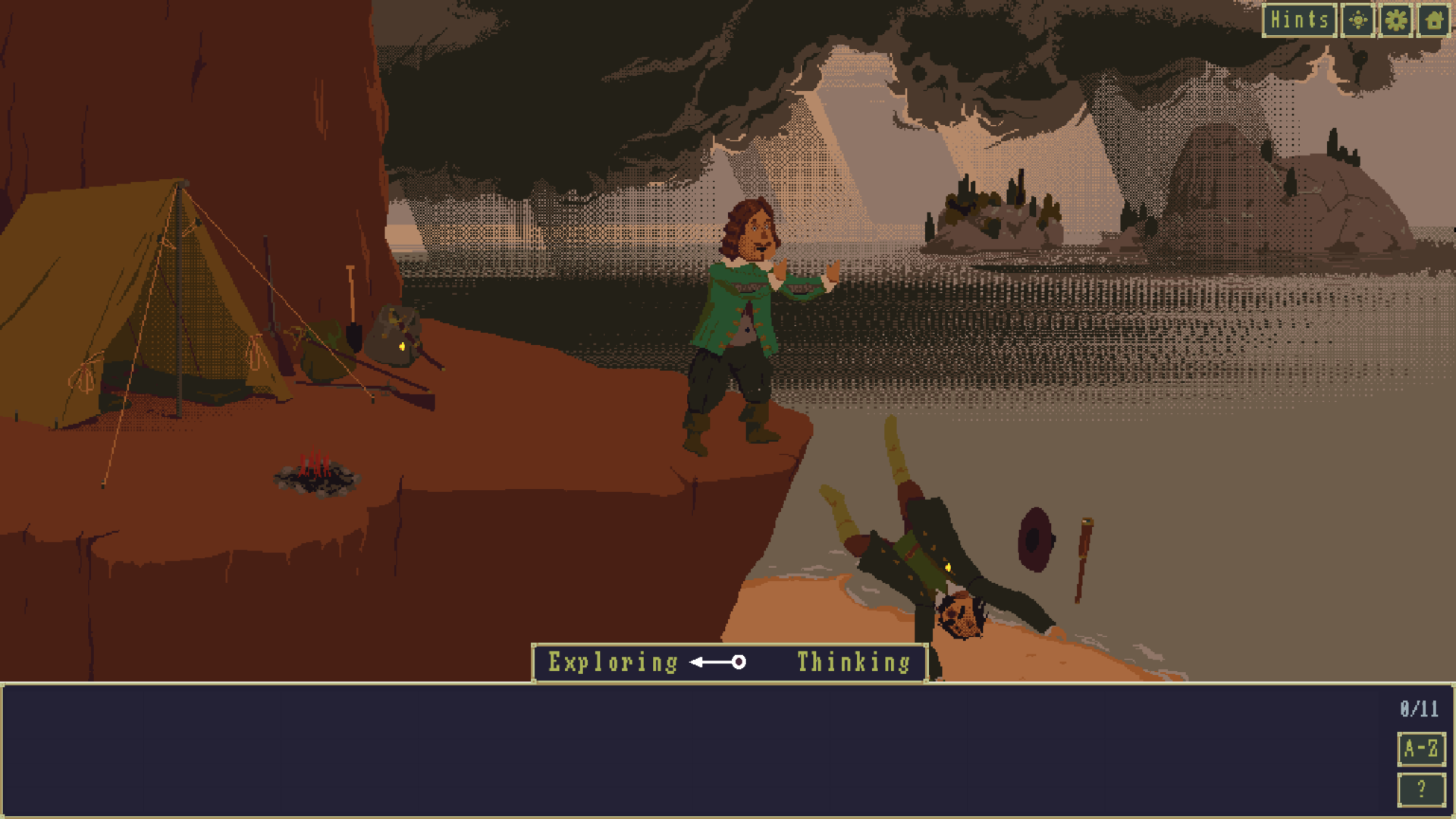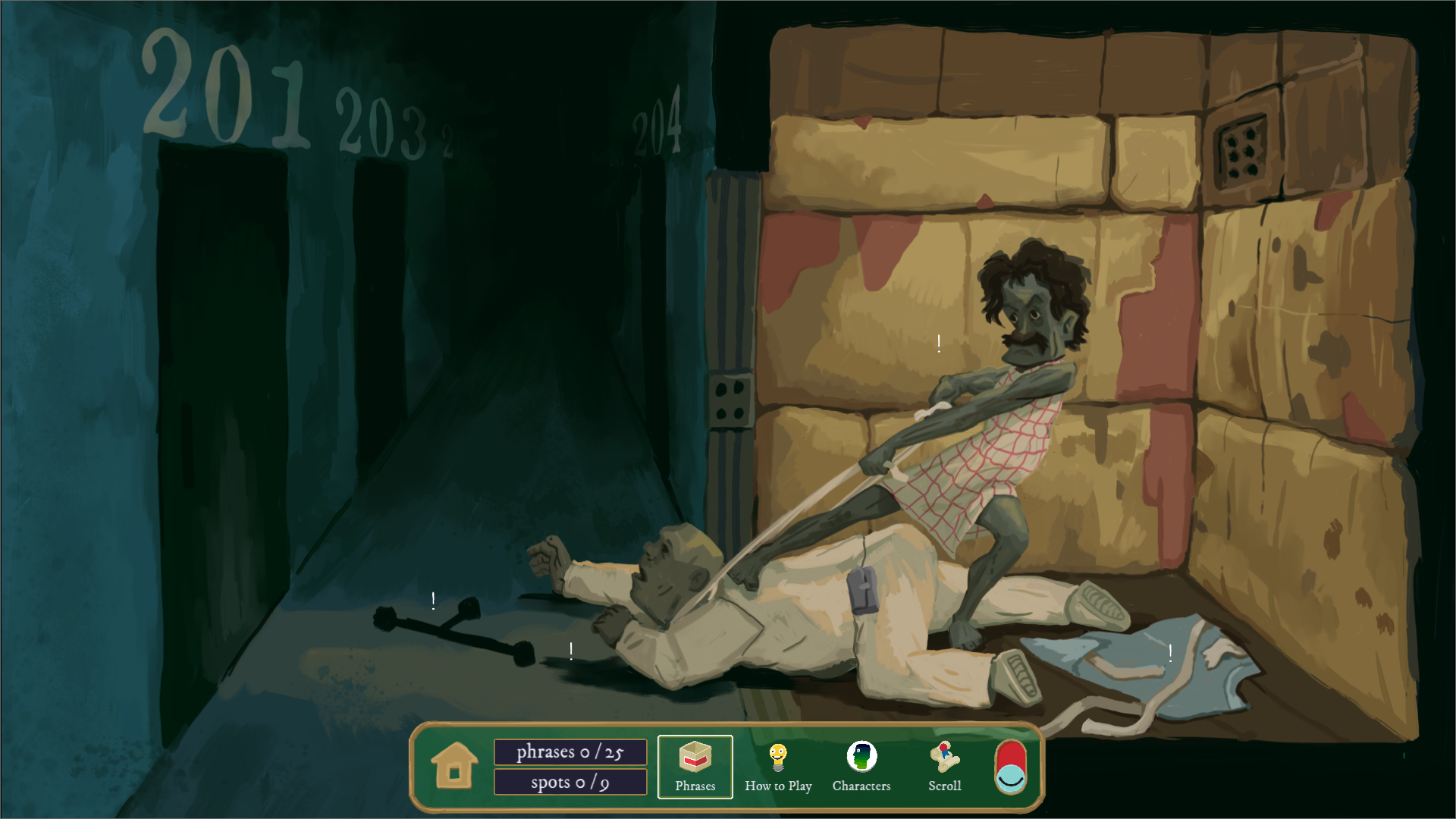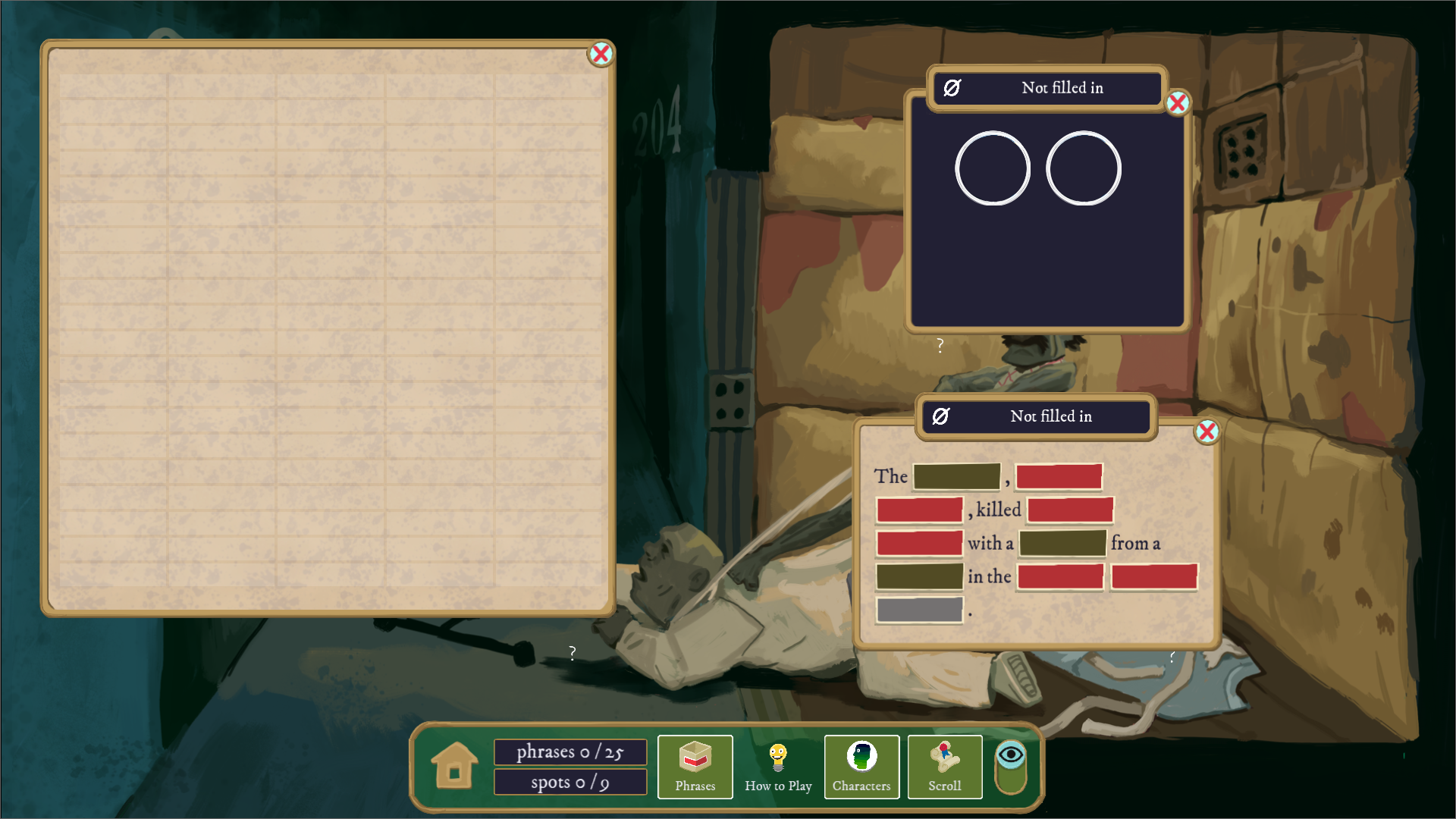
TL;DR: The Rise of the Golden Idol looks good so far, and I’m eagerly awaiting the full release: I want to figure out what’s really happening with the world and story. I have some minor complaints, but they are minor stylistic choices or general problems all games in the deduction genre have.
I recently was given the opportunity to play the Windows demo of The Rise of the Golden Idol (Rise), a deduction/mystery game by Color Grey Games set to release sometime this year (2024), Rise is a follow up to their 2022 critically acclaimed game, The Case of the Golden Idol (Case), and continues the story of that world (and seemingly particularly the events around the titular Golden Idol).
Much like with deduction games like Case and Rise, previews involve looking at something incomplete and drawing imperfect conclusions from incomplete evidence. This process is significantly harder with deduction games because the core of the experience is piecing together information. Only once you’ve fully played a deduction game can you really reflect back on it and know whether or not it was in fact good. It’s also really hard to talk about deduction without getting into spoilers: the gameplay and story are all about unraveling mysteries and putting together information. Therefore, I can’t really talk about how interesting and cool the story and world seemed other than to say it seemed really interesting and cool.
The demo of Rise consists of the prelude (one scene) and the first chapter (three scenes), but the core gameplay is still the same as Case: you look around the scene for clues and keywords, keywords are logged by the system, and then you use those keywords to fill in blanks in various scenes and chapter related entries. My initial thought was that the first four mysteries of Rise felt a bit too easy, but then again the first chapter of Case (which contained its first three scenes) felt fairly easy to me as well.
However, there are some notable changes from Case. Some I like, some I don’t – but I think most people will like the changes. In particular, Rise advances the timeline, has a new art style, and makes a few changes to the interface.
Advancing the timeline is probably inevitable when telling any sort of story, especially one that revolves so heavily around an ancient artifact. Case took place in the 1700s, and Rise advances the timeline into the 1970s. While I think I like where Rise is going with the updated setting and potential thematic elements, it is worth pointing out, as some players might have been drawn to the original time period and themes.


Case’s artwork on the above, Rise’s artwork on the below. Both from the first scenes in their respective games.
Speaking of time advancing, the art style has changed as well. While I find the smoother, heavily stylized art of Rise enjoyable, I do miss the retro art of Case. I grew up with text and later point and click adventure games, and enjoyed that Case’s art reminded me visually of the sorts of games LucasArts and Sierra used to make.
Two things I disliked, but I believe most people will probably like, are changes to how the game interface works. In Case, you had to click on the items or words that would generate keywords. In Rise, once you open an investigation window, it just dumps all the keywords that could be found in that window into your pool of keywords. I get why this change was made, and I’m sure people will like it: no more repetitive clicking of everything you come across and no worrying about missing that one important keyword because you didn’t click on that one word in one document in one guy’s pocket. I’m sure many people would probably see that as annoying tedium – but I enjoyed that seek-and-find aspect of Case’s gameplay.


Case’s “Thinking” screen on the top, Rise’s overlays on the bottom. Both from the first scenes in their respective games.
The second interface change I want to highlight is how Rise handles the keyword bank and various fill-in-the-blank entries. In Case, the game has two screens: the “Exploring” screen and the “Thinking” screen. On the “Exploring” screen, you hunt around for clues. On the “Thinking” screen, you manage your discovered keywords and fit them into various fill-in-the-blank puzzles. While you can toggle between the two screens, both are separate.
In Rise, the various elements of Case’s “Thinking” screen are pop-up windows that appear over the main scene view where you engage in exploration. You can toggle each window on and off independently, and you can even move them around. This is potentially quite useful if you want to look at a scene in question while also referencing a fill-in-the-blank puzzle. While this is certainly a quality of life improvement for some or even many, I preferred full mode toggle of Case. Though having to toggle back and forth was a pain, I think that toggling forced me to rely more on remembering what I had seen in a scene instead of just being able to look at the scene at the same time I worked on a solution. That is to say, Case felt as if it made me work harder.
My last qualm with Rise is one that I have with Case as well. It is one I have with Return of the Obra Dinn too, and basically with the entire genre: If you mostly know the answer, it’s way too easy to just brute force the last missing piece or two of information via trial and error. As mentioned, I grew up with “moon logic” Adventure-style games, and one of the tools in my gaming tool box to this day is, when faced with limited options, to just try everything, no matter how insane sounding. Once I know only one or two bits of information are missing, it’s often way easier and faster to just try all reasonably available combinations of available keywords and let the system tell me if I’m right or not than it is to logically reason out the missing information from the clues available.
I know I’ve spent a lot of time talking about stuff that bothered me, but I do want to emphasize I enjoyed my limited time with Rise. The demo looks great, has engaging gameplay, and hints at an interesting story and lore waiting to be unraveled. I am really eager for Rise’s release so I can figure out what’s going on with the story, characters, and world.
